Nepali migrant workers hit hard by flight price hikes
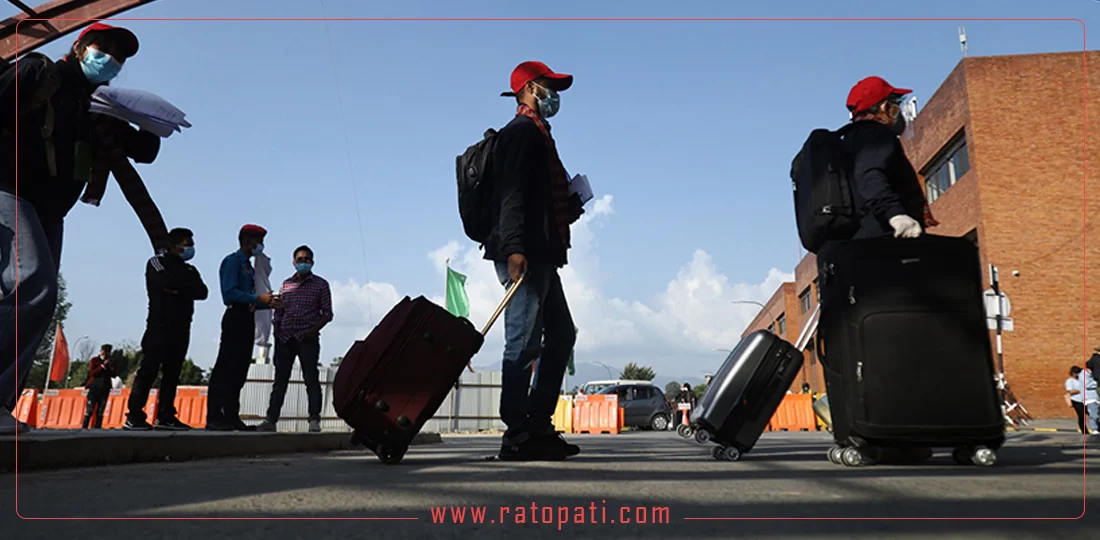
Kathmandu, November 8 — Manpower owner Hari Thapa recently mentioned that he had sold flight tickets for Saudi Arabia from Kathmandu at a rate of 40,000 rupees per person. In the past, he had been able to secure tickets for workers going abroad at prices ranging from 30,000 to 40,000 rupees. However, he explained that the minimum price for a ticket to Saudi Arabia has now risen to 106,348 rupees.
Similarly, flight tickets to Malaysia, which were previously available for around 40,000 rupees, are now priced at a minimum of 74,000 rupees. Tickets from Kathmandu to Malaysia’s capital, Kuala Lumpur, now range from 74,541 to 182,295 rupees.
The airfare from Kathmandu to Dubai has also tripled in price. What used to cost between 30,000 to 40,000 rupees is now priced between 103,818 to 124,000 rupees.
In addition, the minimum airfare from Kathmandu to Doha, Qatar, has reached 105,000 rupees. For Japan, flight tickets range from 155,000 to 253,000 rupees.
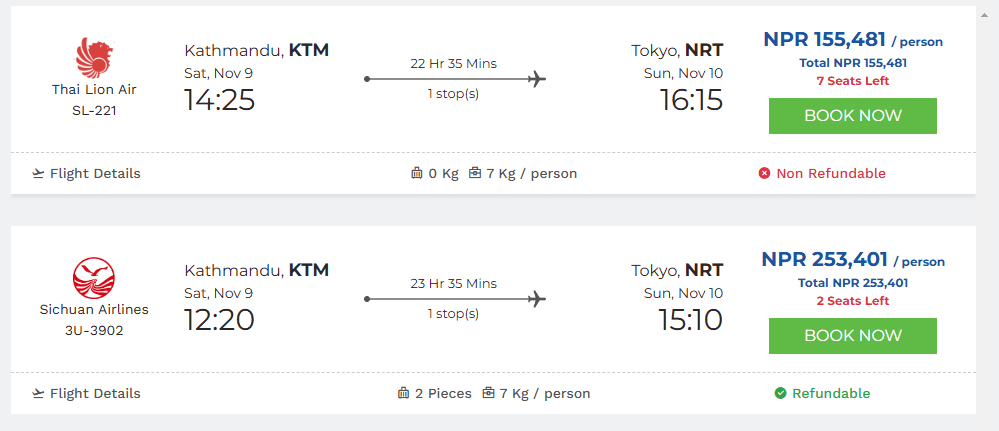
Workers seeking foreign employment by taking out loans are facing significant difficulties due to the sharp rise in airfare prices. As the situation worsens, manpower agents have appealed to the government for intervention. The Nepal Foreign Employment Entrepreneurs Association recently met with the Minister for Labor, Employment, and Social Security, Sharat Singh Bhandari, to raise concerns about the issue.
The association has requested the minister to take action against the drastic increase in airfares, which have surged beyond reasonable limits. In response, Minister Bhandari acknowledged that he is not in a position to regulate airfares directly but assured that he would pursue the matter with the relevant authorities.
Rajendra Bhandari, president of the association, pointed out that airfares have increased unnaturally. "For destinations that used to cost between 35,000 to 40,000 rupees, there are now no tickets available for less than 70,000 rupees. There are still seats available, but the tickets are prohibitively expensive. We have requested either a reduction in fares or an arrangement for flights from Pokhara or Bhairahawa," he said.
The increase in airfares is making it harder for workers to go abroad for employment, with the added cost burden threatening to undo the government's efforts to facilitate foreign labor migration.
Currently, about 1,500 Nepali workers are traveling abroad for employment in countries like Malaysia and the Gulf nations every day. However, the steep rise in airfares has created problems for these workers.
Madan Bhandari, operator of New Era Manpower, highlighted two major issues: the sharp increase in airfares and the difficulty in securing tickets. He accused airlines of creating an artificial shortage of tickets to exploit the situation and engage in black-market practices.
In response, some manpower agents have suggested the possibility of sending workers via India to alleviate the problem, but so far, the government has not responded to this suggestion.
Rajendra Bhandari, the association president, argued that while minor increases in airfare may be acceptable, the artificial scarcity created by airlines is exploiting workers and driving up costs. He also pointed out that more than 60% of foreign travelers from Nepal are workers, and the government must regulate airfares immediately.
Madan Bhandari also criticized the current situation, accusing airlines of increasing airfares in collusion with travel agencies. He also claimed that Nepal Airlines, the national carrier, was being sidelined in favor of foreign airlines, with inflated fares being charged due to commission-based arrangements.
From November 8, Tribhuvan International Airport will be closed for 10 hours daily for maintenance, and according to manpower agents, airlines have taken advantage of this closure to further hike ticket prices.
Janak Rawal, president of the Progressive Foreign Employment Entrepreneurs Forum, stated that the rise in ticket prices has been facilitated by collusion between travel agencies and airlines, creating an artificial shortage and forcing foreign workers to pay exorbitant prices. He emphasized that this has added significant financial pressure on Nepali migrant workers.
Gyanendra Bhul, spokesperson for the Civil Aviation Authority of Nepal (CAAN), explained that cheaper tickets had sold out, leaving only the expensive options available. He also mentioned that due to the airport closure, many tickets had already been booked, and only higher-priced tickets remained.
According to the Foreign Employment Act 2007, Section 22(1), manpower agencies are required to use domestic airports for sending workers abroad. If they have to use foreign airports for flight arrangements, they must seek approval from the department.
Until now, manpower agents have been using domestic airports for sending workers abroad, but due to the recent drastic increase in airfares, they may be forced to send workers via neighboring countries like India, which could lead to a loss of revenue for the state, warned Rawal.
Bhul further explained that the increase in airfares occurred after the lower-class ticket fares were exhausted, with only the higher-class fares available. He stated that regulating airfares for international airlines was not possible, as Nepal has limited control over foreign airlines.
While the number of domestic airlines is limited, Bhul also pointed out that if there were more Nepali airlines, they could drive down the costs of foreign airlines by offering lower-priced flights. However, that is not the case at present.
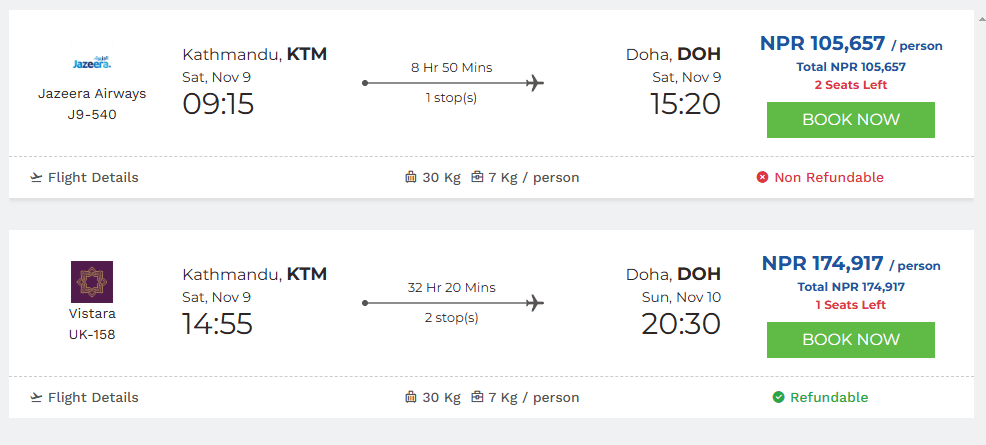
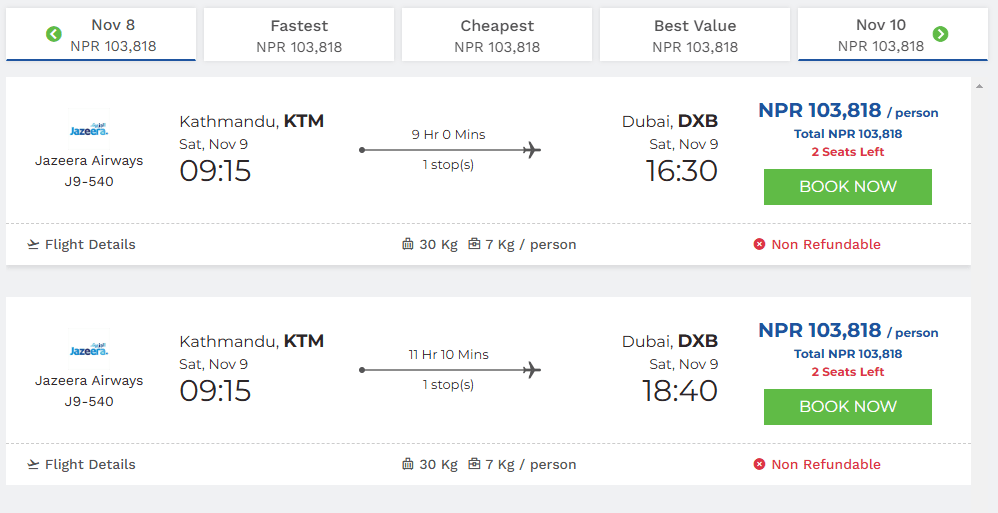
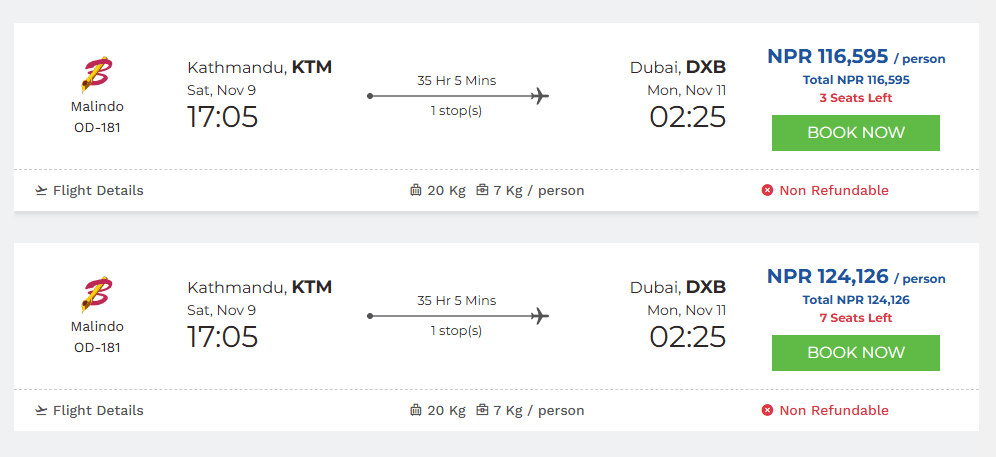
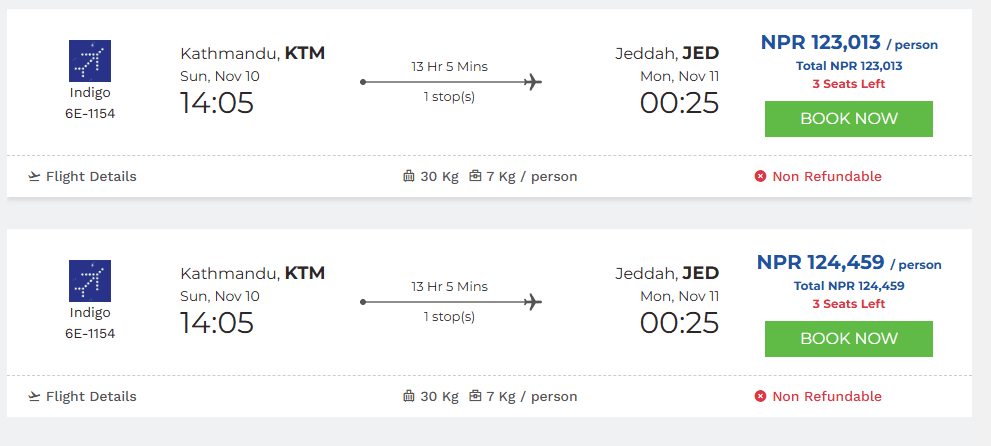
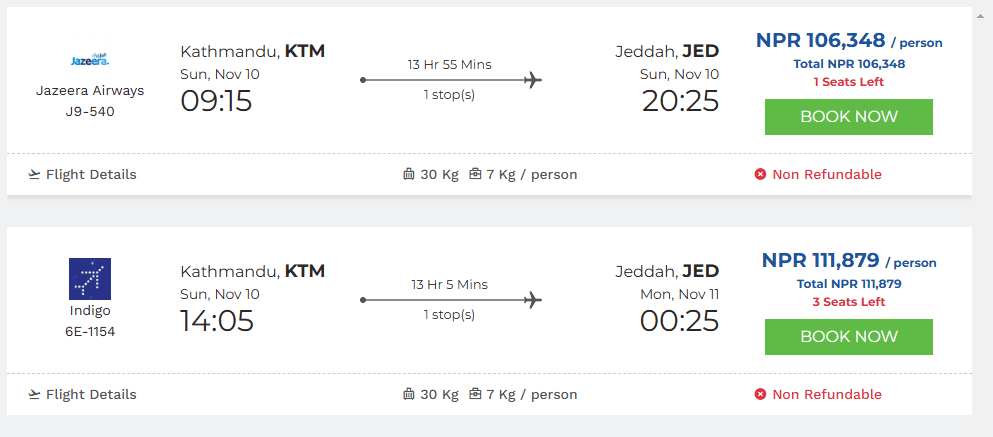
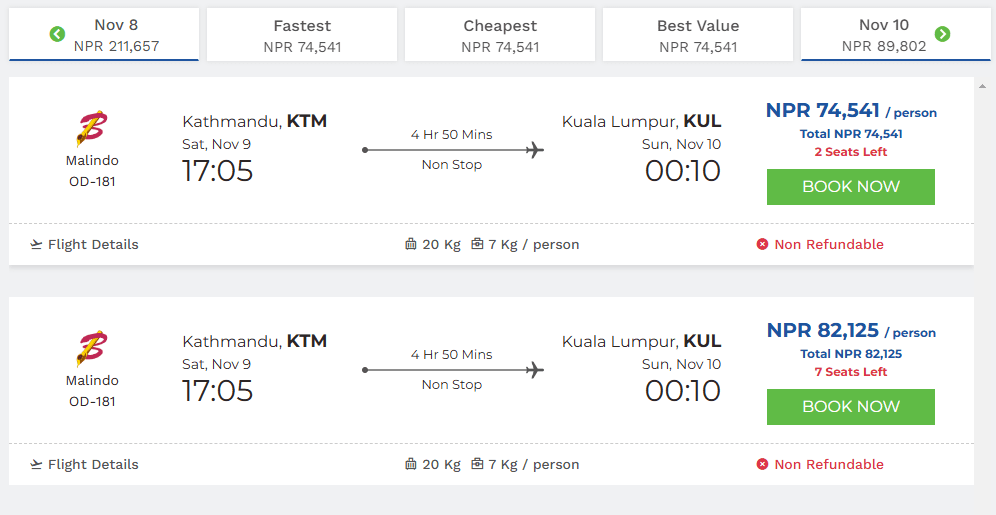



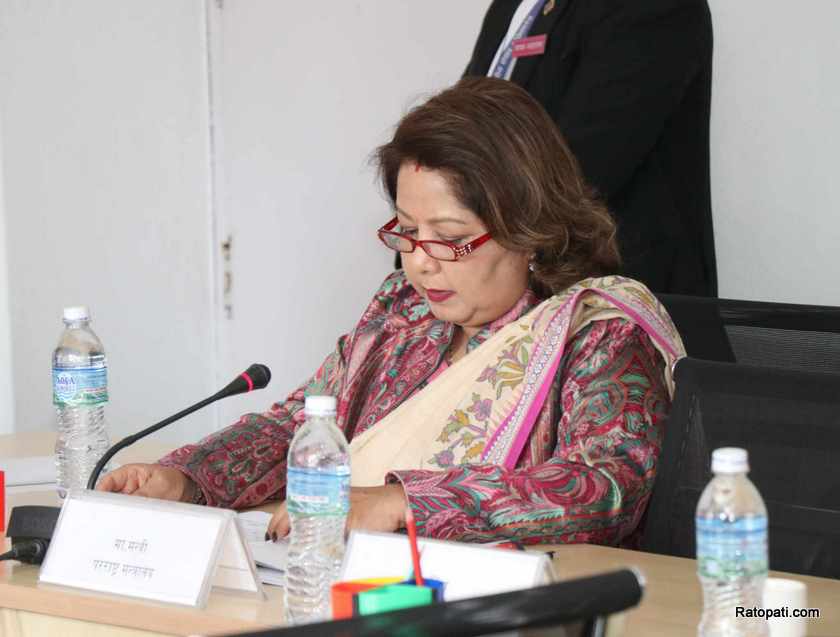


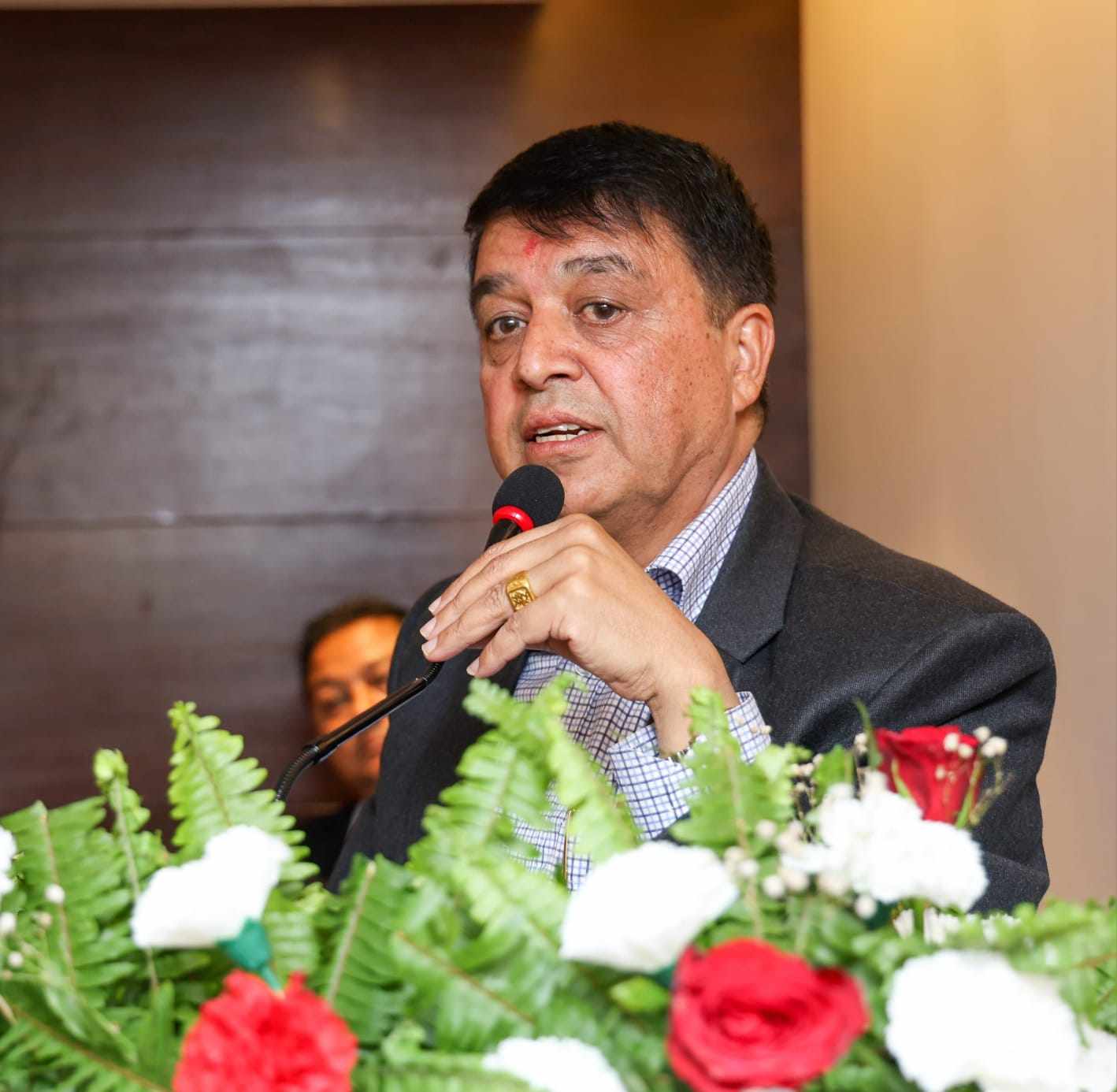


Leave Comment